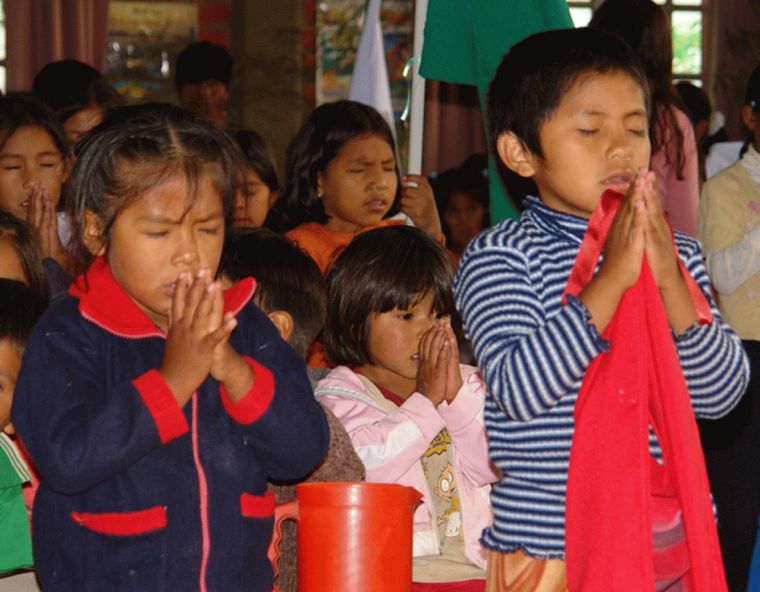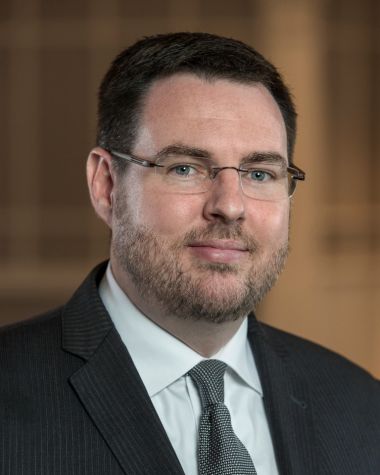Bolivia's ban on evangelism causing mounting concern around the world
Concern is mounting rapidly among Christians over a new law that threatens to ban evangelism in Bolivia.
The World Baptist Alliance is the latest in a number of prominent organisations to protest the legislation that brackets criminal groups with religious organisations and bans people trying to 'recruit' others to take part in 'armed conflicts or religious or worship organisations'.
It means that those holding evangelistic events could face imprisonment.

Elijah Brown, general secretary of the BWA wrote to Bolivian politicians outlining his concerns that 'the ambiguity of these laws could lead to unintended restrictions on religious freedom and to the direct persecution of churches and individuals of faith'.
He said his worry wasn't just for Baptists 'but for all who might find themselves unable to live according to the dictates of their conscience'. The letter added that Brown hoped 'that freedom of religion and expression will be strengthened' and said Baptists are praying 'for the ongoing wellbeing of the country'.
Bolivia is one of the poorest countries in South America with huge income inequalities and an indigenous population estimated at 62 per cent, according to figures provided by the persecution charity Open Doors. This makes Bolivia the country with the largest indigenous population on the continent and in recent years the country has experienced a revival of traditional religion.
While Bolivia's new constitution, introduced in 2008, is secular and ended a historic tie between the Catholic Church and the state, a controversial 2013 law forced all churches and not-for-profit organizations to re-register their legal charters with the government. This meant the state could monitor membership, financial activity and even dictate how churches should structure their leadership.

Open Doors' briefing on the country states: 'It seems dictatorial paranoia as a persecution engine is slowly unveiling itself in the country.'
It adds that President Evo Morales' government has 'suborned the independent judiciary and uses it against political opponents'.
'This is a trend that negatively impacts Christian leaders who seek to defend religious rights,' it adds.
Out of a total population of around 10.8 million, there are around 50,000 Baptists across more than 300 churches, according to BWA figures.
The protest from Brown comes after the National Association of Evangelicals in Bolivia (ANDEB) also weighed in, warning the change in the Penal Code amounted to 'state abuse' against Christians.
After a special meeting the ANDEB formed a National Emergency Commission in response and said in a statement they were 'deeply worried' about the law.
'We maintain the emergency alert of the evangelical people in Bolivia, and as a consequence, events, gatherings, prayer meetings and meetings of spiritual intercessions for our country will be organised in all cities and places where there are evangelical Christian churches and organisation.'
The new law 'is imprecise, ambiguous, badly written, contradictory and its punitive power can constitute state abuse,' the statement said and urged politicians to 'begin the work of preparing a new Penal Code that reflects the social reality of Bolivia'.
It added that the ambiguous wording 'paves the way for any interested interpretations that can be used against our religious organisations'.
The evangelical leaders said 'there has not been enough participation of the citizens' in writing the legislation and called for a new legislation to 'emerge from a consensus and a social agreement of all sectors of our country'.
The new law, found in Article 88.11 of the Penal Code, reads: 'Whoever recruits, transports, deprives of freedom or hosts people with the aim of recruiting them to take part in armed conflicts or religious or worship organizations will be penalised 5 to 12 years of imprisonment.'
'We express our most resolute rejection of the inclusion of our ministerial activities in the list of possible conducts that go against the law,' the statement goes on to say. 'The legislator forgets that the evangelical Christian churches in Bolivia are religious organisations recognised by the Bolivian state, and, therefore, legal entities.'
Christian Today approached the Bolivia embassy in London for comment.











